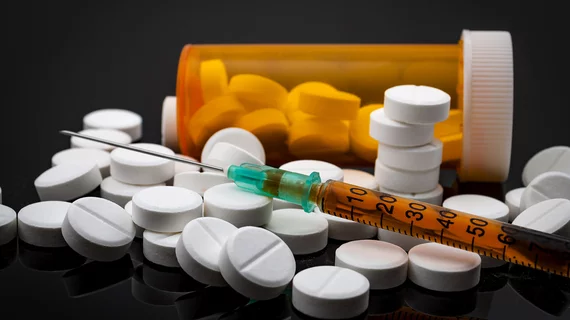Many cardiac arrest deaths actually the result of an overdose
A significant number of out-of-hospital cardiac arrest (OHCA) deaths are actually the result of a patient overdose, according to new findings published in Annals of Internal Medicine.
Researchers tracked data from POST SCD (POstmortem Systematic InvesTigation of Sudden Cardiac Death) Study, focusing on OHCA deaths among adult patients from February 2011 to December 2017. All patients were treated in San Francisco.
Overall, the research team examined autopsy information, toxicology reports, medication lists and prior health records for 525 patients. Fifteen percent of the OHCA deaths were, in fact, an occult overdose. The most common drug classes identified in these patients were opioids and sedative-hypnotics.
When the team extended the cohort—adding another 188 patients but losing some autopsy data—there were still numerous instances where an OHCA death was actually due to an overdose.
“Recognition and characterization of these occult overdose OHCA deaths are critical for accurate estimates of overdose mortality and to inform public health measures, especially in the context of the ongoing opioid epidemic,” wrote first author Robert M. Rodriguez, MD, University of California, San Francisco, and colleagues.
The team emphasized that their research may have focused on one specific area, but its results appear to be applicable to the country at large.
“Although we are confident our findings accurately reflect the incidence of occult overdose OHCA deaths in San Francisco, other communities with different demographic characteristics and prevalence of substance use may have different rates of occult overdose-induced OHCA,” they concluded. “However, San Francisco's age-adjusted overdose mortality rate (21 per 100,000 persons) is nearly identical to the median overdose mortality rate among states (21.4 per 100,000 persons)."

